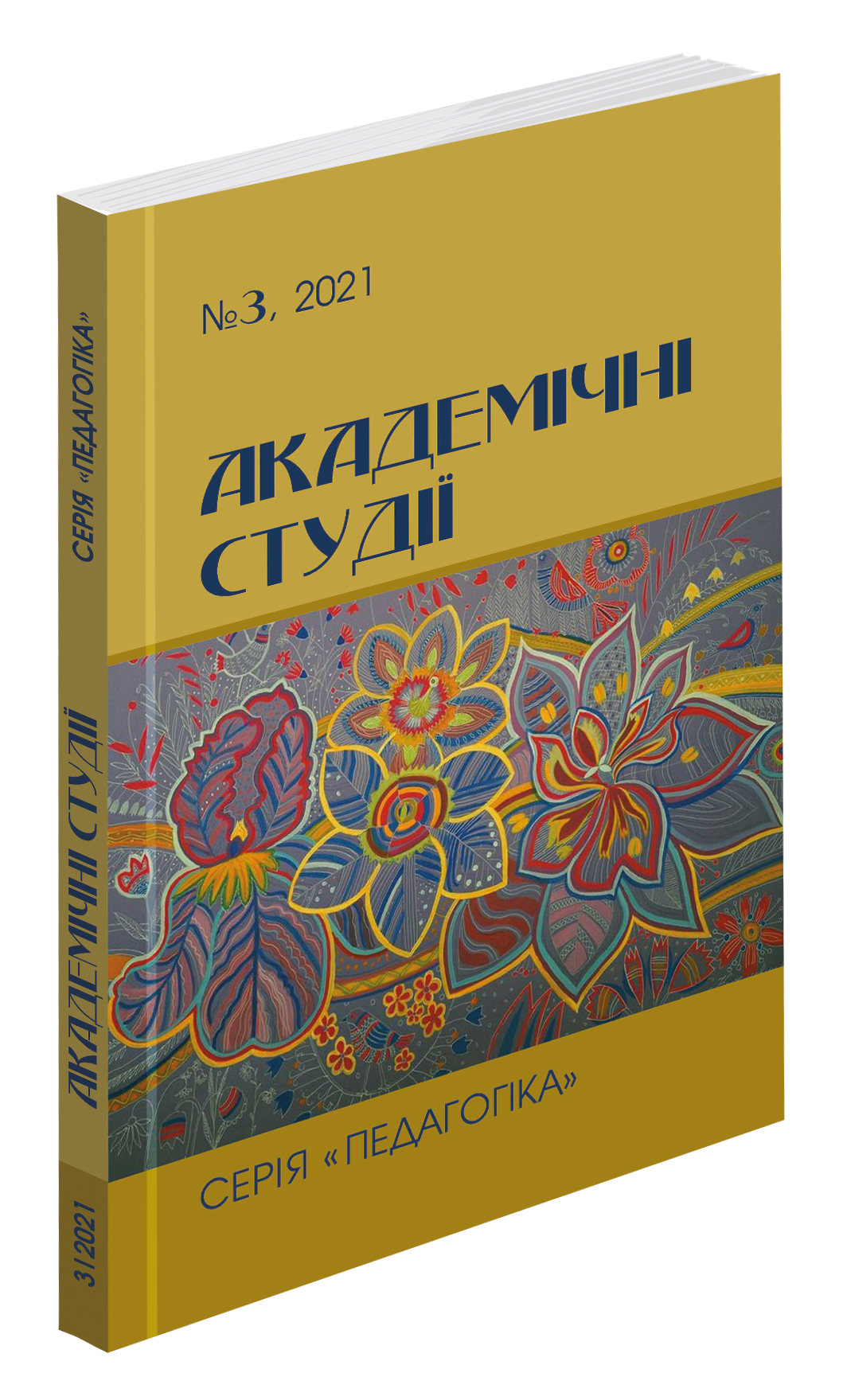Abstract
The article lights up the basics of formation of ecological culture in youth. Scientists are increasingly talking not just about the education of the younger generation, but about environmental education as an individual process of personal development. Culture is a complex of subjectivations and objectifications that must be assimilated in the process of cross-cultural education and used in everyday orientation. The most important function of culture is that it is the way in which societies solve problems. The article proves that culture consists of four main elements: concepts, attitudes, values, rules and norms. Each of these components has an extremely important role in creating the cultural image and environmental education of professionals. The most important function of culture is that it is the way in which society solves problems. Taking into account modern world tendencies, formation of ecological culture in youth acquires special value in Ukraine. State programs, state documents aimed at promoting a healthy lifestyle of young people are outlined, which one of the main tasks of education is to cultivate a conscious attitude to one’s own health and the health of others, to form hygienic skills and principles of a healthy lifestyle, to preserve and promote health. It is proved that work on health-preserving activity of students should unite two interconnected components: 1) acceptance by them of values of a healthy way of life (propaganda component); 2) their acquisition of knowledge and acquisition of skills and abilities necessary for independent fulfillment of requirements and transfer of knowledge to students in future professional activities (content-informational and practical level). The study of the state of the problem in modern scientific research has allowed to formulate, specify and scientifically substantiate the pedagogical conditions of effective health activities of students in the educational process of free economic education.
References
Національна доктрина розвитку освіти (Україна у ХХІ ст.): Затв. Указом Президента України 17 квітня 2002 р. № 347. Освіта. 2002. № 26. С. 2–4.
Теорія та історія світової і вітчизняної культури : підручник / Н. Я Горбач, С. Д. Гелей, З. П. Російська та ін. Львів : Каменяр, 2019. 178 с.
Головлева Е. Л. Основы межкультурной коммуникации. Ростов-на-Дону : Феникс, 2018. 226 с.
Akseonova, E., Varetska, O., Klopov, R., & Bida, O. (2020). Efficiency of Social and Educational Experimental Training “New Physical Culture for the New Ukrainian School” (Ефективність соціальної та освітньої експериментальної підготовки «Нова фізична культура для нової української школи».). Revista Romaneasca pentru Educatie Multidimensionala. Vol. 12. № 1 Sup 1. С. 1–18. URL: https://lumenpublishing.com/journals/index.php/rrem/article/view/2537
Зысманов Б. М. Формирование здорового образа жизни студенческой молодежи как доступного и эффективного средства противодействия неблагоприятным воздействиям окружающей среды. Проблемы региональной экологии. 2006. № 4. С. 94–98.
Игнатова В. В. Педагогические стратегии в контексте профессионально-культурного становления личности студента вуза. Сибирский педагогический журнал. 2004. № 1. С. 105–113.
Красноперова Н. А. Педагогическое обезпечение формирования здорового образа жизни. Научно-теоретический журнал. 2005. № 6. С. 32–38.
Сало В. М. Роль навчальних закладів у формуванні здорового способу життя молоді. Проблеми освіти. 2006. № 45. С. 217–222.

